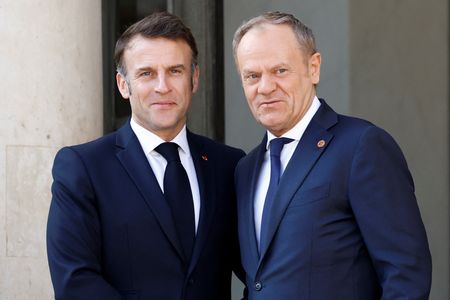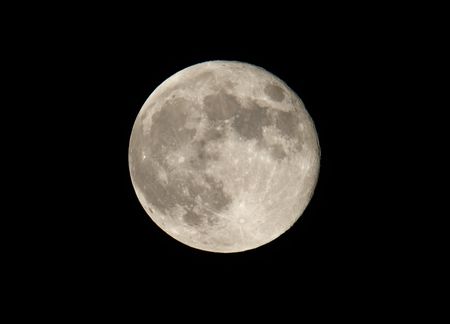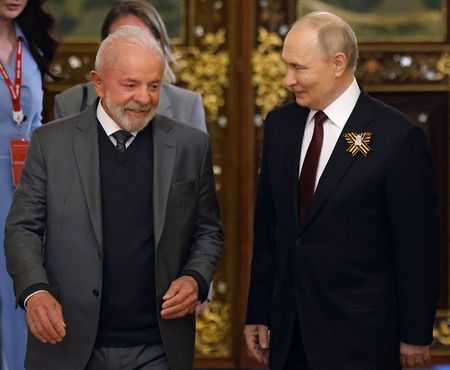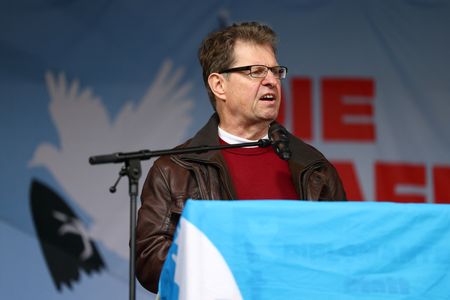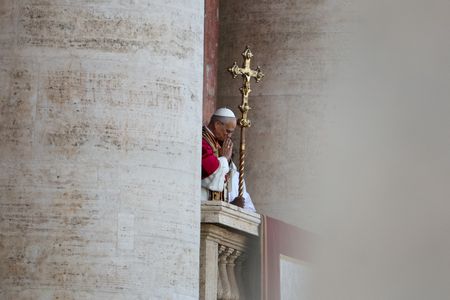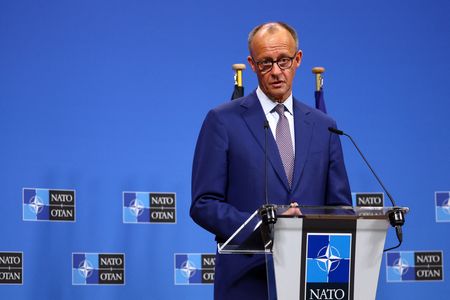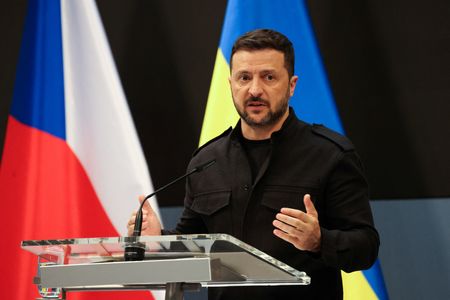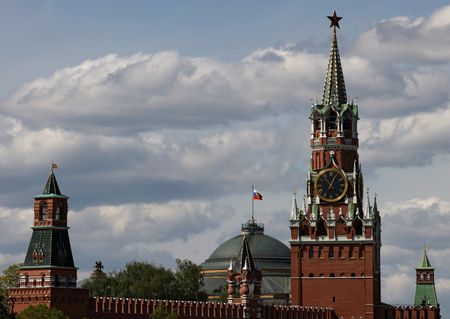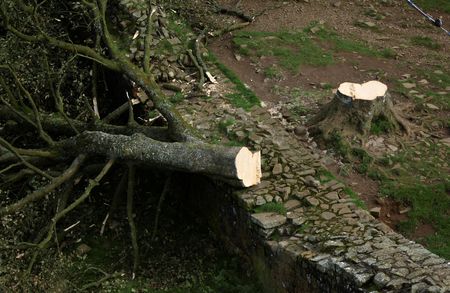By Anna Koper, Elizabeth Pineau
WARSAW/NANCY (France) (Reuters) -France and Poland will on Friday sign a treaty to increase cooperation on defence and energy issues, in a sign of growing security alliances among European nations amid concerns about U.S. commitment to Europe’s defence.
The signing comes just 24 hours after the 80th anniversary of the end of the Second World War, and on the day that Moscow is holding a major military parade attended by China’s President Xi Jinping.
Polish Prime Minister Donald Tusk, speaking at a press conference before heading to France to meet with President Emmanuel Macron, said the treaty will include measures for mutual assistance in case of an attack on either country.
It also opens up opportunities for cooperation on the issue of a potential extension of the French nuclear umbrella to cover Poland, he said.
“From my experience, the provisions of the treaty are groundbreaking from the point of view of our safety,” he said.
However, the pact is not an “alternative” to Poland’s relations with the United States, Tusk said: “We need both America and a strong European Union.”
As U.S. President Donald Trump’s long-term commitments to European security are increasingly in doubt, the pro-European government in Warsaw is keen to diversify its security partnerships beyond traditional links with Washington.
The treaty is testament to fast-growing Poland’s increasingly pivotal role on the European stage, thanks to its strategic position on the continent’s eastern flank. A NATO member, Poland spends 4.12% of its economic output on defence, the highest percentage in the alliance.
The new bilateral treaty, the first one France has signed with a Central European country after a series of pacts with Italy, Spain and Germany, is seen by French officials as key to boost military cooperation and further French influence.
It comes after Macron said in March he was open to extending French nuclear capabilities to other European nations.
French officials said the treaty will include language meant to facilitate talks with Poland on France’s “vital interests” – code for nuclear deterrence. They said France’s nuclear umbrella won’t replace the U.S. security guarantee, but would complement Poland’s defence if faced with threats.
The treaty is being signed in the eastern French city of Nancy, where the former Polish King Stanislaw Leszczynski lived in the late 18th century, becoming the Duke of Lorraine after losing the Polish throne.
(Reporting by Anna Koper, Pawel Florkiewicz, Michel Rose and Elizabeth Pineau; Editing by Gabriel Stargardter, Hugh Lawson, Timothy Heritage and Sharon Singleton)

